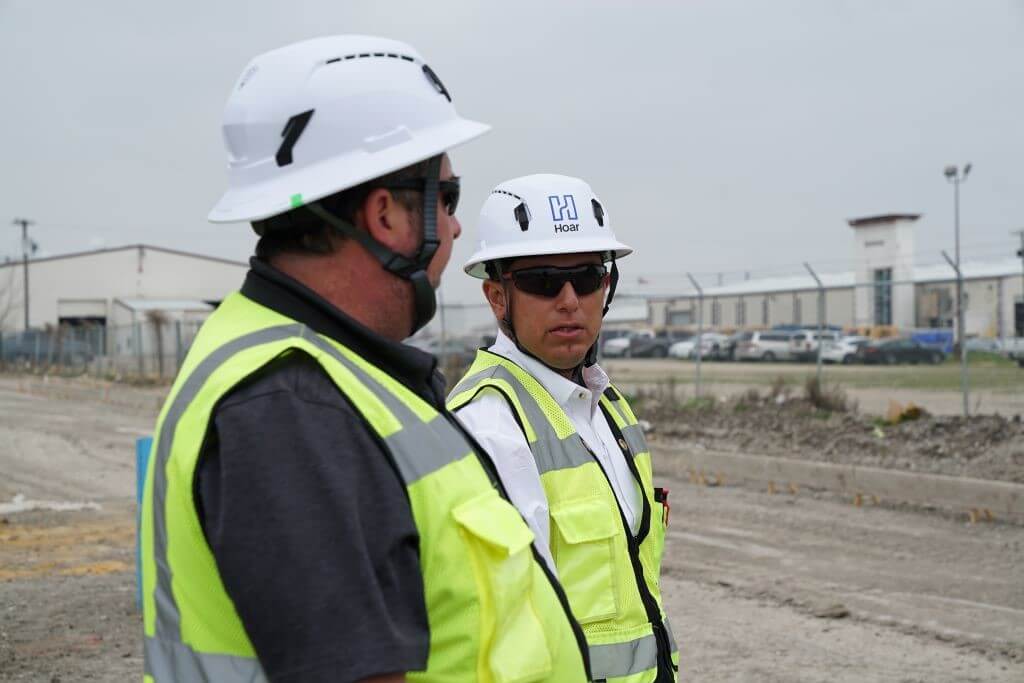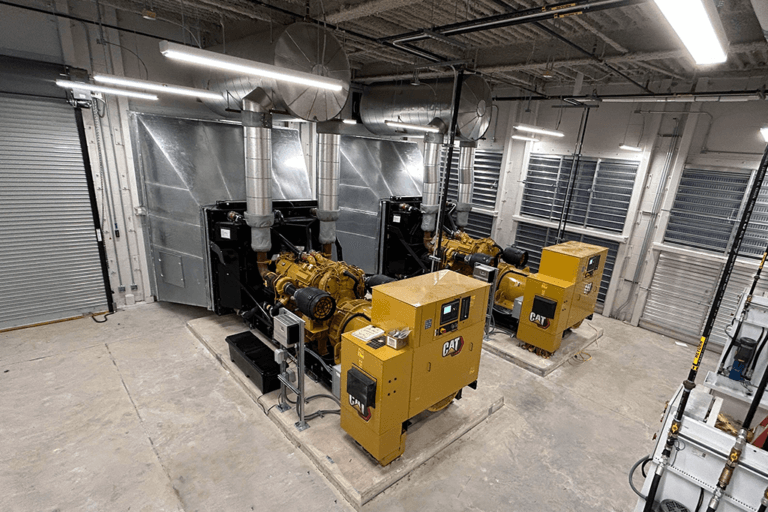
Empowering someone to speak up isn’t something you can accomplish with words alone. If you walk around on site telling everyone it’s their job to say something if they see a hazard or to stop work if they feel unsafe, the only people who you are reaching are the ones who already feel comfortable and confident enough to do so. That’s not just on our job sites, it applies to every work setting no matter the industry. If leadership wants to get honest, crucial feedback from employees, they need to lay the groundwork and build an environment where people feel empowered and safe to use their voice.
This year’s Construction Safety Week theme is “Value All Voices. Encourage. Listen. Empower.” I believe that message is aimed at the leaders in our industry. It’s a call to action. You can tell someone, “I value your voice,” but until you prove you mean that with your actions, you can’t expect people to take your word for it. I realized this is easier said than done. Building trust, creating comfortable environments, and empowering the people you work with takes time and effort. We’ve spent 84 years building a safety program that focuses on eliminating hazards through pre-planning, extensive training, and open communication. Our program is rooted in the idea if we can prevent unsafe situations before they happen, we can eliminate the potential for incidents. We start each new task with a specific safety meeting to give our teams a place to ask questions, plan work for the day, and talk through any and all safety challenges that work might create. But our program is constantly evolving and we’re always looking for ways to improve our processes to empower people to speak up. I’d like to lay out a few ways we’re working to create a safer, more open environment on our job sites.
Value All Voices
According to census reports, about 1 in 5 people in the United States speak a language other than English at home. We understand that not every voice on our job speaks the same native language, and that any amount of misunderstanding on a construction site can lead to incidents. It’s the project leaders’ responsibility to value all voices, in all languages, and take action to verify every person performing work that day fully understands the scope of work and safety plan. Beyond providing training videos and documents in English and Spanish, we use the specialized construction language safety app Need2Say to break down language barriers and increase understanding. We’re also piloting the use of an online language training course for our field leadership to become more fluent in other languages spoken on our job sites and are working to expand this training offering across our divisions.
Beyond valuing all voices and the different languages we speak; leaders need to take suggestions and feedback they hear and affect real change. If someone tells you an idea they have to improve efficiency or safety, and then watches nothing come of it, how likely are they to bring up any other ideas? Proving you value all voices requires you to take action. Or, if it’s a suggestion that you don’t agree with, at least have a conversation about why. Listening should be active. When someone speaks, is heard, and then made to feel understood — that is how you show someone their voice is valued. For supervisors, this requires a focused effort to pause in our busy days or set aside time for follow up conversations. But the time spent will be paid back in full by more engaged team members on site actively building up a culture of safety.
Encourage
This year, Hoar launched a new field training program that I am very excited about. It’s called Future Field Leaders Program and its goal is to provide mentorship and paid training to students coming out of high school who are interested in opportunities in construction. It’s a new way for us to encourage the next generation of builders and instill this idea of creating a safe, empowering environment as they enter the workforce. It’s harder to teach a veteran a new way of approaching safety, than it is to train people just starting out to foster conversation and create opportunities to listen to teammates every day.
In addition, I don’t think we can overlook the importance of events to show our appreciation on site. Any opportunity we can take, as field leaders, to show our trade partners and team members what they are doing matters and that we appreciate their work. Prove to people that you value them, by just showing them a moment of gratitude. I’m talking about topping out milestones, Safety Week events, team lunches, and safety stand downs. We all care about getting the job done and keeping the schedule. I think it’s just as important to be intentional, taking a break to celebrate the efforts behind the building.
Listen
As we’ve covered already, listening has to be an active, intentional part of every field leader’s day. When you’re walking the site, don’t just check up on people’s work. Take time to check in with them individually. Is everything going ok? Do you have any concerns about how the work is being performed? Do you have the proper tools you need? Do you feel safe? Pick any one of those questions and take 5 minutes to truly listen. Even if you’re met with a simple “yes” or “no” to every question, the effort alone is proving you’re open and a source people can go to when they need to be heard.
Beyond listening to individuals, sometimes leaders have to listen to changes within the industry. That’s what Hoar Construction did last year. We decided as a company to invest in replacing the traditional hard hats with safety helmets, that feature a chin strap and improved protection against traumatic brain injuries, which make up 25% of all fatalities in the construction industry. This is an example of listening to the facts, and what will keep our people as safe as possible. Our core values and our commitment to safety guided us to adopt this new, improved PPE to save lives and send people home to their families. In addition, the helmets we ultimately chose for our company feature technology that can save the individual’s health history and information to be scanned by paramedics in the case of an emergency.
Empower
In our industry, I often hear people say, “Everyone is responsible for safety.” But if we limit our safety messaging to a blanket statement that everyone is responsible, I’d argue no one is actually taking personal responsibility. It’s human nature to assume someone else has it covered. To me, empowering someone is letting them know they are personally responsible for their safety and the safety of those around them. That’s not passing the buck to them or telling them they’re on their own. There is power in responsibility. Ownership. You are responsible, so you have the power to stop work. You have the power to speak up. You have the power to let supervisors know if there’s a problem, or if you feel something has been overlooked. In our company, we encourage our field leaders to use morning safety talks to engage and empower our teams. Let them know not only do they have this power, but we also want them to use it. There have been instances in our company of someone on our project teams spotting another worker using improper PPE or a tool incorrectly, and they stopped work and spoke up. We share these stories on our sites, and across our company in the hopes it will motivate and assure others that we mean what we say. If you are working on one of our sites, you have the power to speak up for safety.
My hope is that our industry continues to embrace valuing all voices by listening, encouraging, empowering. My focus is of course construction safety, but this is a leadership approach that will drive more success and positive environments in any work setting. To keep improving, it’s crucial to have a diverse pool of opinions and ideas. The only way leaders will get that critical feedback is if they are establishing an environment where employees understand they have the power to, and feel free to, speak up.

